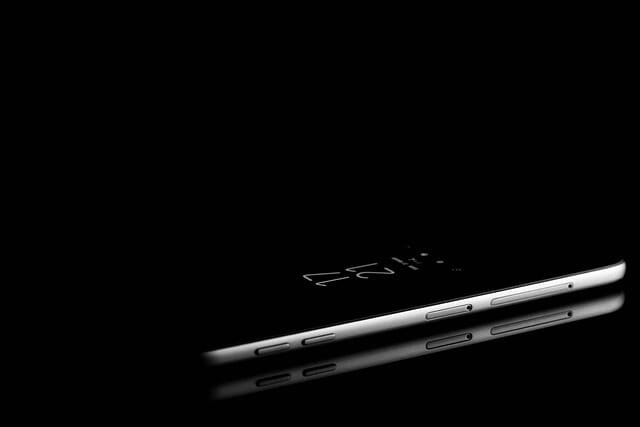The Essential Checklist for Effective Phone Number Checking
In today’s fast-paced digital world, the importance of accurate and reliable communication cannot be underestimated. Whether you’re running a business, reaching out to a friend, or trying to connect with a potential client, knowing how to effectively check and validate phone numbers can save you time, money, and frustration. This article will serve as The Essential Checklist for Effective Phone Number Checking, detailing everything you need to Unlisted number lookup know about identifying phone numbers, caller ID functionalities, and utilizing phone number checkers for validation and verification.
Understanding Phone Number Checking
What Is Phone Number Checking?
Phone number checking is the process of verifying whether a phone number is valid and active. It helps identify if the number belongs to an actual person or business. With the rise of scams and spam calls, ensuring that a phone number is legitimate has become more crucial than ever.

Why Is Phone Number Validation Important?
Validating phone numbers is essential for several reasons:
- Preventing Fraud: By confirming that you're communicating with real individuals or businesses.
- Enhancing Communication: Reducing miscommunication by ensuring that messages reach their intended recipients.
- Improving Marketing Efforts: Ensuring your outreach strategies are directed toward genuine leads.
Common Uses of Phone Number Checkers
Phone number checkers are tools designed to validate numbers quickly and efficiently. Here are some common applications:
- Business Outreach: Verifying customer contact details before launching marketing campaigns.
- Personal Use: Ensuring that friends or family members can be reached without issue.
- Fraud Prevention: Helping organizations reduce financial losses due to scams.
Identifying a Phone Number: How It Works
Components of a Phone Number
A typical phone number consists of several parts:
Each component plays a pivotal role in identifying where the call originates from and its intended destination.
Using Caller ID Effectively
Caller ID allows you to see who is calling before answering the phone. While not entirely foolproof—due to spoofing—it serves as an initial filter when deciding whether to answer unknown calls.
Advantages of Caller ID:
Call verification- Helps in recognizing known contacts.
- Assists in screening unwanted calls.
The Essential Checklist for Effective Phone Number Checking
Best Practices for Phone Number Validation
Automating Your Verification Process
Automation can greatly enhance efficiency in validating numerous contacts simultaneously:
- Implement automated systems that utilize real-time databases.
- Schedule regular checks on your existing database.
Manual vs Automated Checks
While automation offers speed, manual checks may provide a more thorough vetting process when necessary.
| Method | Pros | Cons | |---------------------|-------------------------------|----------------------------| | Manual Verification | Highly accurate | Time-consuming | | Automated Verification | Fast and efficient | May miss nuanced issues |
Phone Verification Techniques
Understanding SMS Verification
SMS verification sends a code via text message that users must enter before proceeding with actions like account creation or transactions.
Using Voice Calls for Verification
Voice call verification involves calling users directly to confirm their identity through interaction rather than just relying on technology.
Challenges in Phone Number Checking
Dealing with Spoofed Numbers
Spoofing refers to falsifying information transmitted over caller ID displays; being aware of this can save you from potential frauds.
Handling Invalid Numbers
Sometimes numbers change hands or become obsolete; knowing how to deal with invalid entries is crucial in maintaining an effective communication system.
Legal Considerations Around Phone Validation
Understanding Privacy Laws
When handling personal information such as phone numbers, it’s vital to adhere strictly to privacy laws including GDPR or CCPA depending on your location.
Obtaining Consent Before Contacting Individuals
Always seek explicit consent before reaching out via text or calls; failing this could lead not only to legal ramifications but also damage your reputation.
Tools and Resources for Effective Phone Validation
Here are some popular tools available for checking and validating phone numbers:
Each tool offers different features ranging from reverse lookup capabilities to spam reporting systems which can aid in your validation efforts.
Case Studies on Effective Phone Validation Strategies
Let’s look at some real-world examples illustrating successful implementation of these practices:
Case Study #1: E-commerce Business
An e-commerce company noticed high return rates on marketing communications due to invalid numbers; implementing an automated validation system led them to increase engagement rates by over 30%.
Case Study #2: Financial Institution
A bank utilized SMS verification techniques during account setups which reduced fraudulent signups by nearly half compared to previous years without these safeguards.
FAQs About Phone Number Checking
What is the best tool for checking phone numbers?
The best tool depends on your needs; Truecaller is excellent for personal use while Whitepages works well for business validations.
How do I identify if a number is valid?
You can use reliable online checkers and verify against national databases or carrier services.
Can I trust caller ID?
While caller ID provides useful information, it’s not foolproof due to possible spoofing techniques used by scammers.
What should I do if I receive spam calls?
Report them using apps like Truecaller; blocking these numbers also prevents future disturbances.
Is there any legal concern regarding unsolicited calls?
Yes! Always respect Do Not Call lists and obtain consent where required by law prior contacting individuals.
How often should I update my contact database?
Regular updates every few months ensure accuracy; also consider validating new entries upon collection.
Conclusion
In summary, understanding how to effectively check and validate phone numbers is essential in today’s communication landscape—whether it be personal connections or business endeavors, having reliable contact details Online identity verification can make all the difference between success and failure in outreach efforts.
By following The Essential Checklist for Effective Phone Number Checking, employing sound practices along with trustworthy tools will not only enhance your capabilities but also mitigate risks associated with frauds while improving overall communication effectiveness.
This comprehensive guide aims at empowering readers with actionable insights into effective phone number checking strategies tailored specifically towards their needs across various contexts—ensuring peace of mind whether they’re making important calls or sending sensitive texts!
